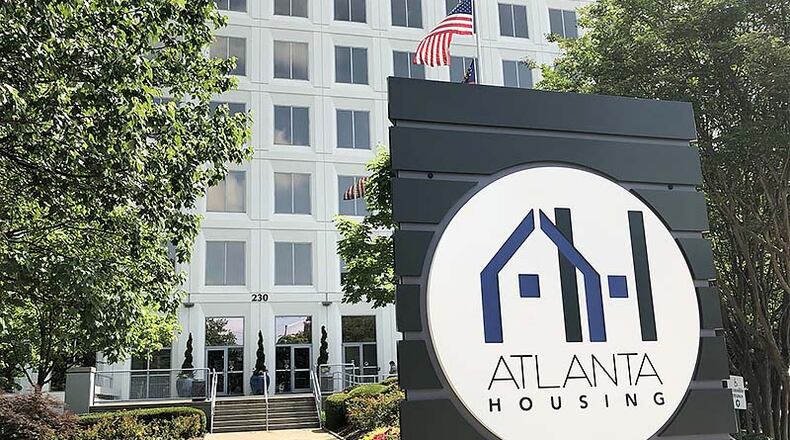The Atlanta Housing Authority touted its past and planned actions Tuesday during an Atlanta City Council committee meeting.
But its presentation left several council members questioning how the department’s efforts will better serve more Atlantans.
Agency officials told the panel that it has provided housing assistance to nearly 25,000 households in fiscal year 2019, which ran from July 2018 to June 2019, according to Tuesday’s presentation. For fiscal year 2020, the agency got approval for about $106 million for a series of property investments.
Some of those projects will include $38.5 million for the construction of five affordable housing complexes, $29.6 million for joint ventures with Invest Atlanta; and $15.5 million for the planning costs of seven new affordable housing complexes, according to officials.
Of the 491 units set for construction this fiscal year, 79 percent are deemed affordable by the department, according to an AJC analysis of the data.
Those efforts were not enough to satisfy some committee members.
Councilwoman Marci Collier Overstreet said that although she has many constituents in her District 11 who receive vouchers for housing assistance from the agency, she would like to see the vouchers dispersed across Atlanta.
“I’m trying to figure out a way to make sure that these vouchers are used all over Atlanta, because I think that’s how generations have a better chance, if all of the vouchers are spread around the entire city,” she said.
District 11 includes the Greenbriar and Princeton Lakes neighborhoods, and parts of Campbellton Road. She requested maps from the Authority of the distribution of the vouchers.
Despite her district’s need for affordable housing, she also said it was being “left out” of the several development plans for the upcoming year. Councilman Matt Westmoreland agreed.
Some of the agency’s priority developments are in Bankhead, Peachtree Road, East Lake and areas around the Mercedes-Benz Stadium and Atlanta University Center, all places in districts other than hers.
"This isn't the vision of One Atlanta," she said, referring to the informal name of the Office of Equity, Diversity and Inclusion.
Joy Fitzgerald, the interim CEO and president of the Housing Authority, responded by saying the agency's priority is to develop the vacant lots left behind by razed housing projects.
She also said the department is trying to attract voucher recipients to parts of the city with better job opportunities, but said it’s hard to get people to leave their neighborhoods, which may explain why those who most need the vouchers are concentrated in one area.
“One of the things that is an obstacle [is that] folks want to live where they’re familiar. They want to live where they have connections to institutions such as churches, where their doctors are,” she said.
Councilman Michael Julian Bond asked agency officials why someone would be rejected for a housing voucher, as his neighbor has been trying to obtain one, but has been denied, he said.
Fitzgerald told Bond there are many factors — including a person’s criminal history — that could jeopardize their receipt of a voucher.
In addition to being susceptible to criminal background checks, household members must meet income thresholds set forth by the federal Department of Housing and Urban Development (household income for a family of four in the metro area cannot exceed $63,750; the threshold is $44,650 for an individual), and they must work full-time, or participate “in a combination of school, job-training and/or part-time employment,” according to Atlanta Housing’s website.
Councilman Antonio Brown called for the agency to commission more services led by women- and minority-owned businesses, and to hire within the communities they are developing.
A handful of attendees applauded when Brown classified some landlords in low-income communities as “slum lords.” He commended the agency’s work to improve housing conditions, but also requested it increase its inspections, instead of abiding by HUD’s minimum of once a year, and only conducting them when a complaint is made.
Fitzgerald told Brown that the agency does not have enough resources to do more frequent inspections.
Still, Brown was not moved.
“I think it’s great that we have folks at the table. I think that’s a start,” he said. “But we have to at some point start moving into actionable items in support of these residents.”
About the Author
Keep Reading
The Latest
Featured




